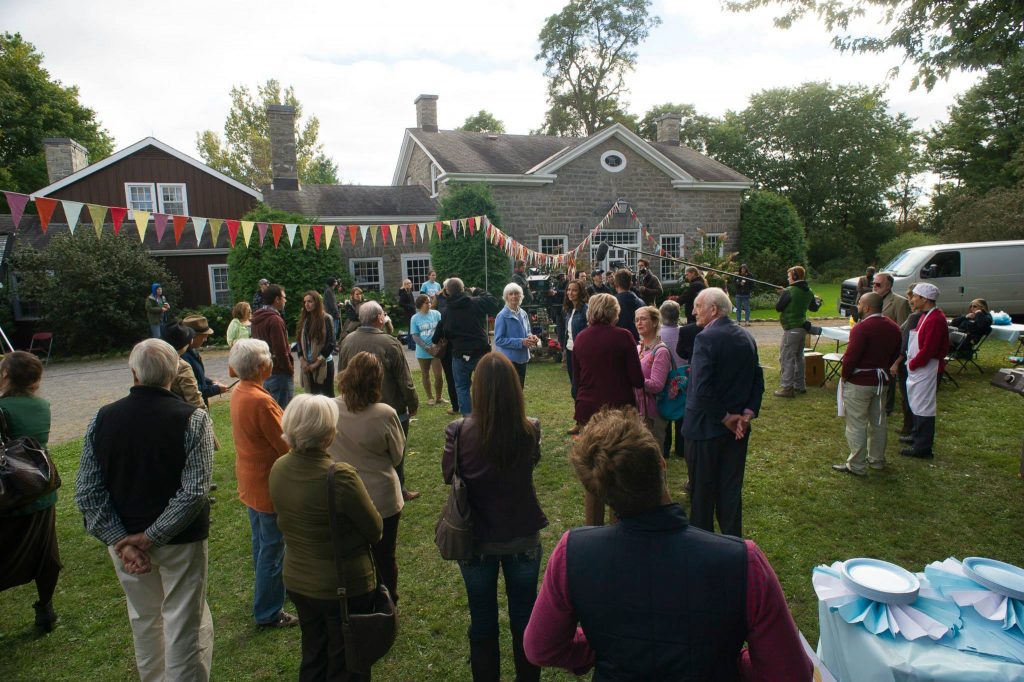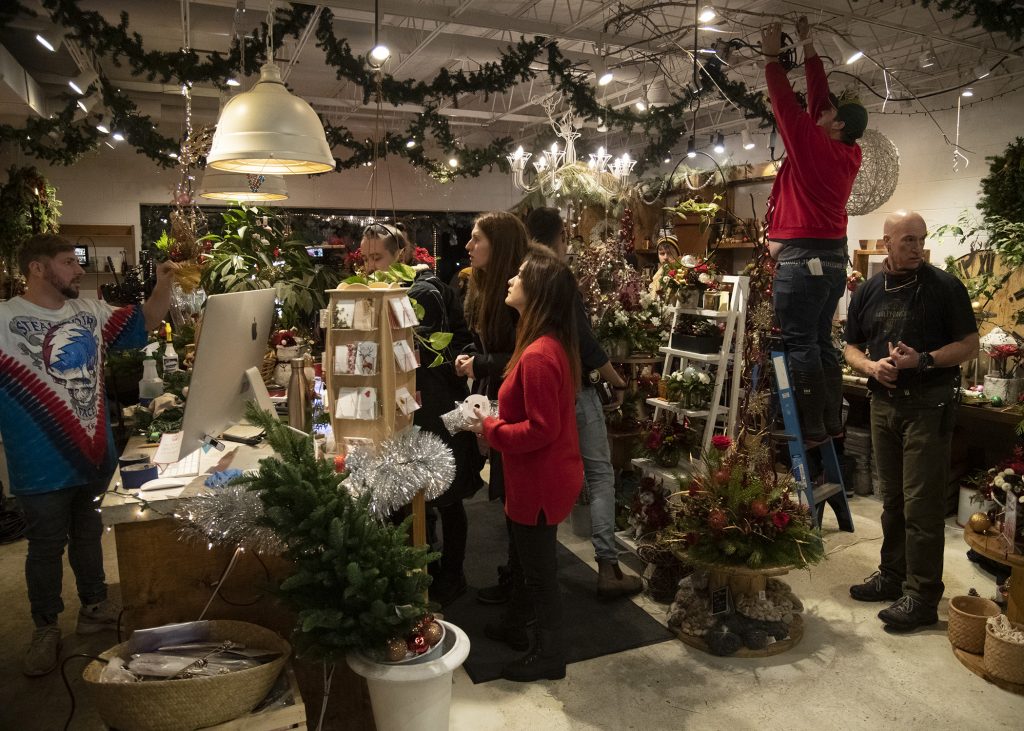We previously wrote about location scouting tips for filmmakers, but what if you’re on the other side? Becoming a filming location can be an exciting and rewarding new chapter as a business or home owner, but can also lead to questions and concerns. We’ve prepared a few tips to help guide you through the process, from a production’s initial outreach to filming day, so you know what’s expected for a smooth and positive experience.

Location Scouting
One of the first steps in the pre-production process is location scouting. A location scout will read the script and create a breakdown – a summary of all the places that are needed for the film or TV series. From there, they’ll look online and physically scout locations to provide multiple options for the director and creative team.
If your house or business is being considered, you might receive a visit from a scout or a letter in your mailbox detailing the project, with the scout’s contact information at the bottom. You can contact the scout to set up a visit of the space and discuss any questions or concerns you have. During the visit, the scout will take multiple interior and exterior photos, so it’s important that your property is clean and mess-free to best showcase the space. We should note that just because your house or business was photographed, it doesn’t mean it will be chosen for that particular project, but it may be considered for future productions.
We encourage you to contact our office if at any time you have concerns about the legitimacy of a production or location scout. We know all the professional film and TV productions happening in the city and can easily verify if what you received is a genuine opportunity.

Filming CBC’s ‘The Best Laid Plans’ at a house in Burrits Rapids
Photo courtesy of Albert Camicioli
Location Agreement
Once your property has been selected, the location manager will present you with a location agreement (or location release). This document serves as a contract between you and the production, detailing key components such as:
- Date and time your property will be used (including prep, filming, and take down)
- Scope of access
- How much you will be paid
- How the captured footage will be used and who has the rights to it (generally the production company)
- Indemnification and insurance
The agreement will also stipulate that should alterations be made, such as painting a wall, the property will be returned to its original condition; the property owner can also request that their approval is needed before any modification occurs. The production company is responsible for any damages that happen due to their actions and will ensure to have these repaired as soon as possible. Always make sure the production has liability insurance that covers property damage and bodily injury to third parties.
Once all the terms are finalized, both parties sign the agreement (note the agreement should be signed by the owner of the property and not the tenant).
Compensation
Professional film and television productions will always compensate businesses and homeowners for use of their space, the details of which should be included in the location agreement. How much you receive will depend on a few factors, such as the production’s budget and how much space is needed, and for how long. Payment can range from a few hundred dollars to several thousand.
Businesses that are required to shut down for a day to accommodate filming are generally entitled to additional compensation for loss of revenue. When productions need exclusive access to the entire house for several days, the homeowners will often be lodged at a hotel at the production’s expense.
The Tech Scout
A tech scout, sometimes called a tech survey, will often occur a few days or weeks before filming begins. This is when the director, location manager, and department heads visit the confirmed locations to plan how they will shoot the scenes on the filming day(s). Is there parking nearby for production trucks and trailers? Is there a power source they can tap into? How much natural light is in the space at any given time? Are there any background noises (e.g. traffic, HVAC, etc.) that will need to be minimized? These are just some of the questions the crew goes over during the tech survey.
Filming Day
The big day has arrived: production trucks are parked on your street, dozens of crew members are parading through your property, and your house or venue will soon be making its on-screen debut. We reached out to local location scout and manager Eric McAllister to know how property owners can prepare for this bustling day. Here’s what he had to say:
- Don’t worry about cleaning the home too much. We’ll be putting carpets and cardboard all over the place to protect it so all the film crew will see is that. A quick tidy-up is good.
- There are quite a few people on site, but everyone has their job. Ottawa crews always keep the location at the top of their mind when they’re working. The carpets, lights, cameras, and crew might make you feel like you’ve made a mistake, but we always take excessive care of our locations. Things aren’t as chaotic as they might seem!
- Accidents can happen so put anything irreplaceable away, things like family heirlooms or souvenirs that can’t be replaced with all the money in the world.
Eric also adds, “Renting your home for film can be a fun experience, an opportunity for a staycation, a vacation with the family, or an excuse to go visit family out of town – often a paid vacation. Then 3-9 months later you can all cozy up on the couch and see your home captured on the big screen.”
Unless the production is being kept under wraps, property owners, neighbours, and passersby will often have the chance to watch some of the action unfold. It’s important to be respectful and keep in mind that this is a work site and everyone is trying to do their job to the best of their ability. And if you’re planning on taking pictures or a video, always ask someone first to make sure it’s ok; some productions have a ‘no photos on set’ rule, while others are more relaxed as long as the actors aren’t included.

Filming ‘Candy Cane Christmas’ (pre-COVID) on location at Terra Plants & Flowers
Photo courtesy of Albert Camicioli
Filming in the time of COVID-19
Ontario’s film and television industry was permitted to continue operating throughout most of the pandemic due to strict health and safety guidelines. While we know it can be concerning to have over 50 strangers in your space, productions take the safety of their cast and crew very seriously and implement all necessary precautions, such as mask-wearing, screening/testing, and frequent hand washing. Filming locations also undergo rigorous cleaning and disinfecting before, during, and after filming.
Listing your property
Now that you know what to expect, you’re ready to start promoting your property as a filming location. We showcase a wide array of film-friendly locations in and around Ottawa on our Flickr page which we’re always looking to enhance and promote. Interested business owners are encouraged to email us with a description of their space and high-quality photos, preferably interior and exterior shots which best showcase the property. To protect homeowners’ privacy, we don’t include photos of private residences on our Flickr page; instead, we recommend listing your home on the Ontario Creates digital library where only registered film and TV professionals can access your photos and contact information.
Some locations will be used multiple times while others may have yet to land their first on-screen appearance. If your location has been listed for a while and you haven’t been approached for filming, don’t despair. Every production has different location needs and it could be that your space just hasn’t yet matched a script’s vision and tone. Be patient and we’re confident you’ll be hosting film crews and actors once the time – and project – is right.

